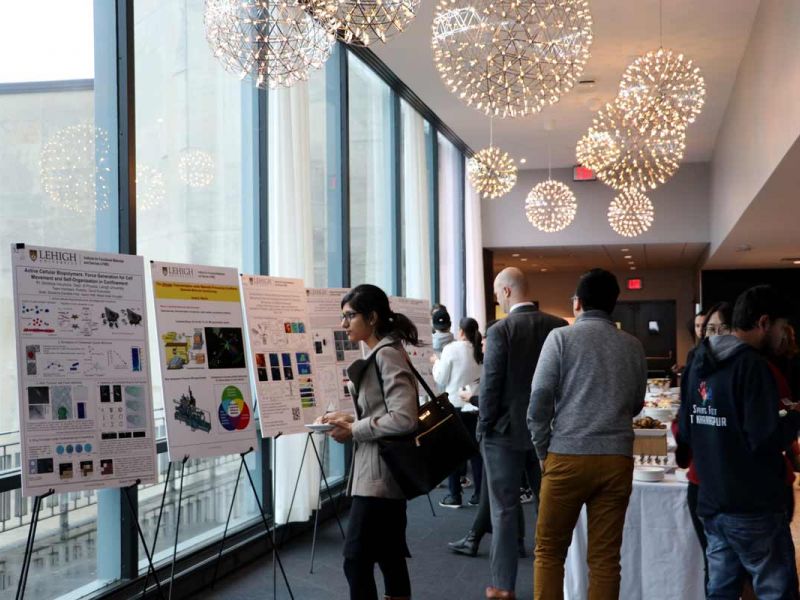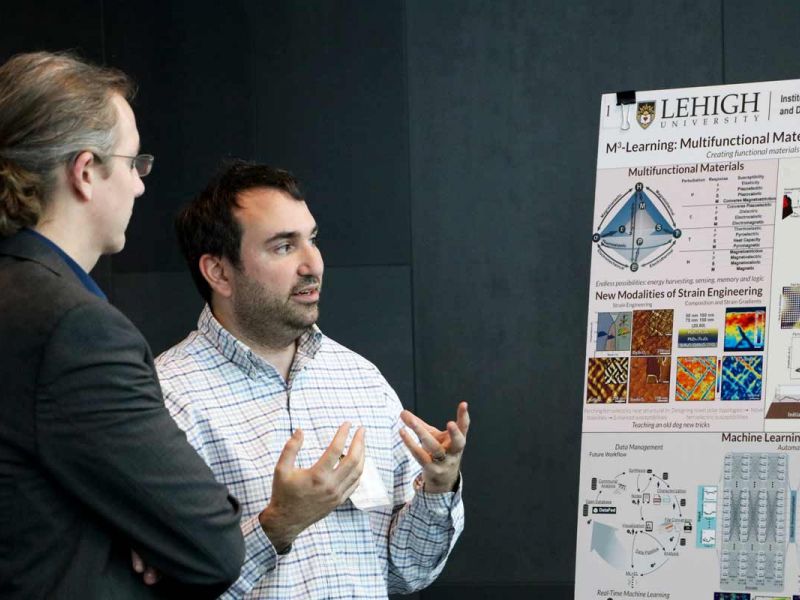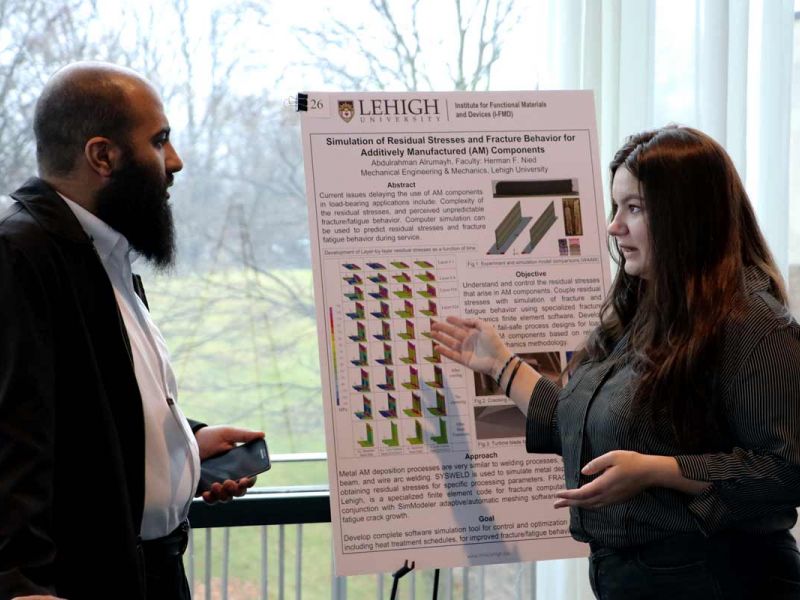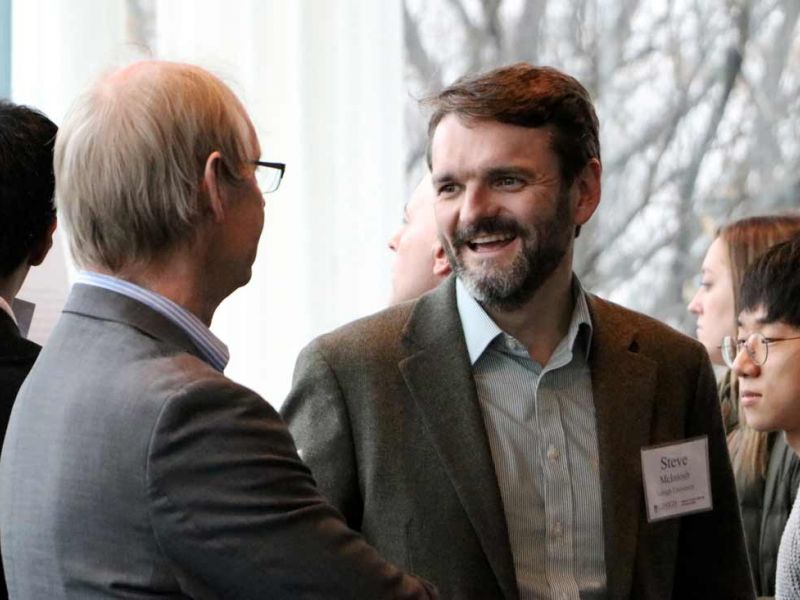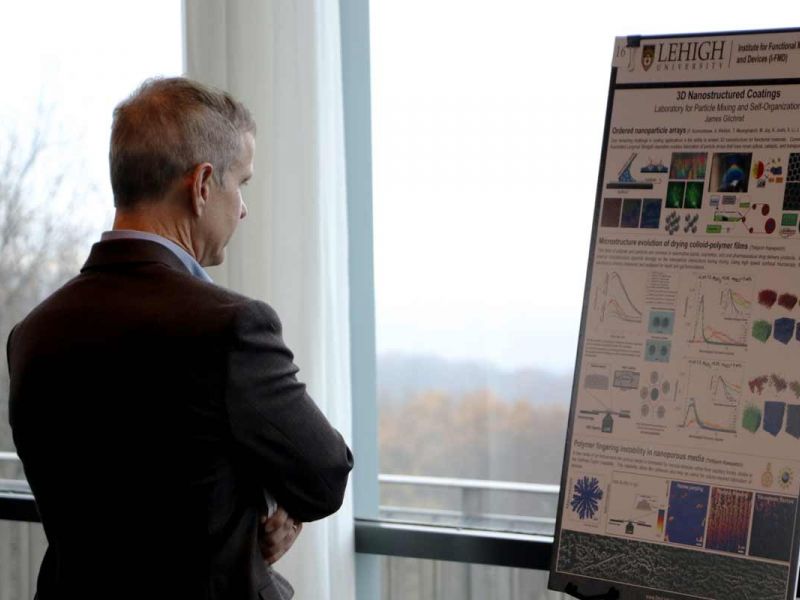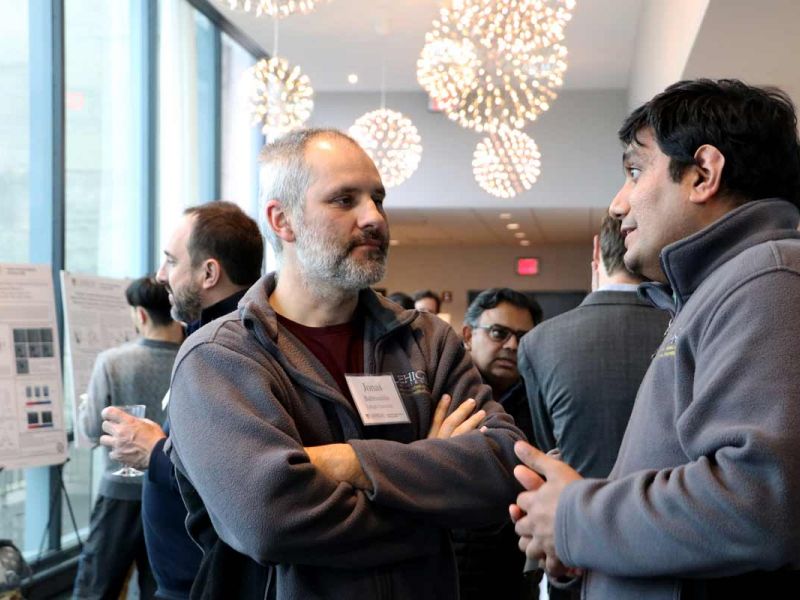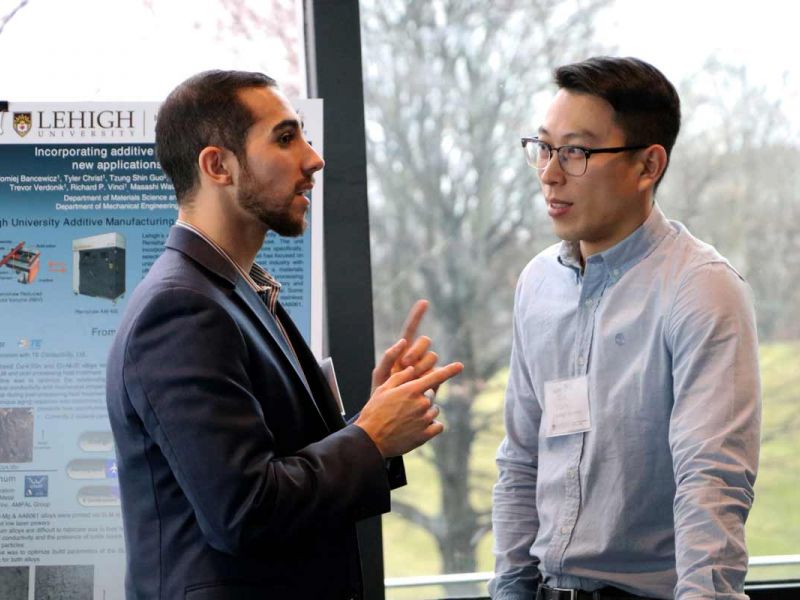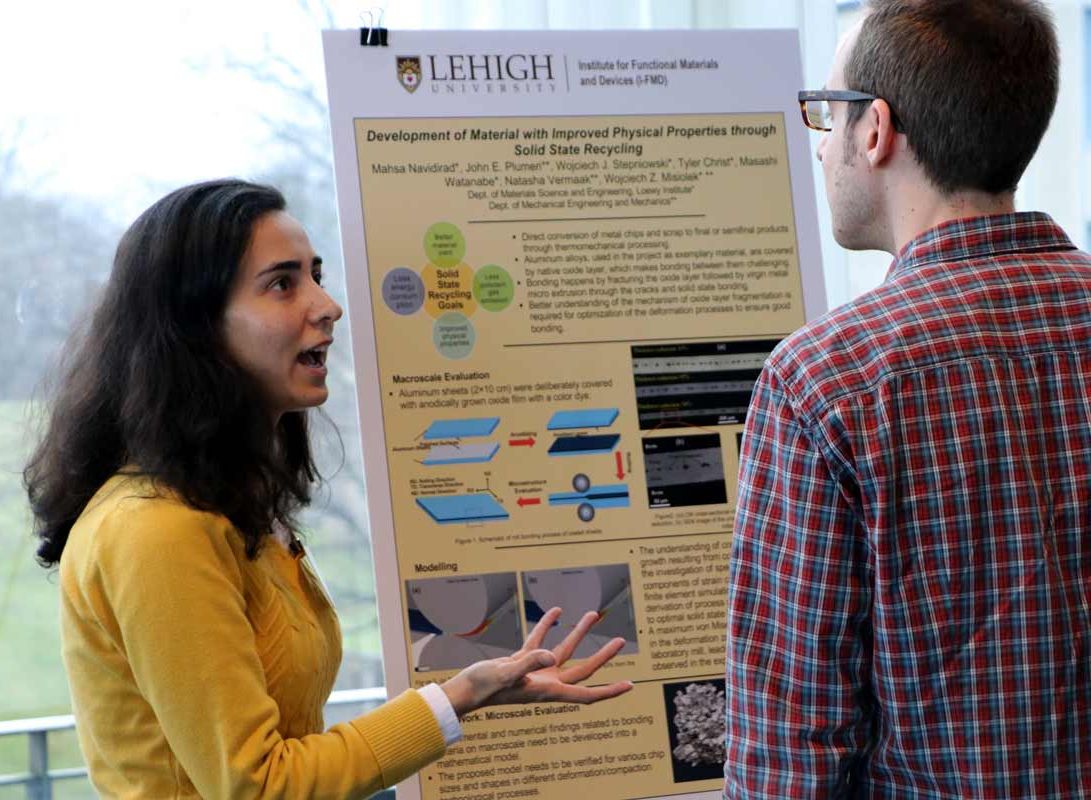At the Lehigh Materials Symposium, members of both industry and academia had a unique opportunity to share challenges in materials development and applications, and to seek future collaborations.
The symposium, which was hosted by Lehigh University’s Institute for Functional Materials and Devices (I-FMD), took place November 18-19 at Iacocca Hall. The event featured 10 presenters from organizations such as Exxon-Mobil, Special Metals, the U.S. Army, and the National Science Foundation (NSF), as well as a poster session and tours of the university’s nanofabrication and materials characterization facilities. Over 150 scientists, including researchers from the private sector and graduate students and faculty from universities in the region, participated in the event.
Topics included an Outlook for Energy, Sustainable Mineral Resource Development, and the Future of Materials Science. Rajesh Mehta, a program manager in the NSF’s Industrial Innovation and Partnerships Division, discussed funding opportunities intended to catalyze industry-university interaction.
“The presenters were all from outside Lehigh,” says Wojciech Misiolek, Loewy Professor and Chair of the Department of Materials Science and Engineering and director of the Loewy Institute. “And they were excellent. Their topics were relevant, the quality of their presentations was high, and they were all important people in their fields. We academics tend to be the ones speaking, and it’s important that we listen from time to time.”
Academic researchers learned about not only the varied needs of industries but also how their work might complement those of their colleagues.
“It was a great opportunity to learn what other people are working on,” says Masashi Watanabe, an associate professor of materials science and engineering. “Through questions they asked during discussions that followed the presentations, we heard different perspectives on our individual research areas, which in turn got us thinking that maybe we can team up. It was a good seeding process.”
“These are the type of events that nucleate interactions that wouldn’t be possible in any other setting,” says James Gilchrist, a professor of chemical and biomolecular engineering. “To be able to ask decision makers directly what they need and then channel our own research expertise to address these needs is perhaps the best way to develop impactful research.”
The faculty engaged in materials research across various departments presented posters that highlighted the expertise of their groups. This information is particularly useful for potential collaborators to address problems of mutual interest.
To conclude the event, participants observed Lehigh’s state-of-the-art electron microscopy suite, unique surface characterization tools, and 3-D printing facilities.
“The tours gave industry members the chance to see our capabilities here at Lehigh,” says Watanabe. “Because in the end, we want to know how we can help each other and partner up to solve problems that have a real impact on society.”

